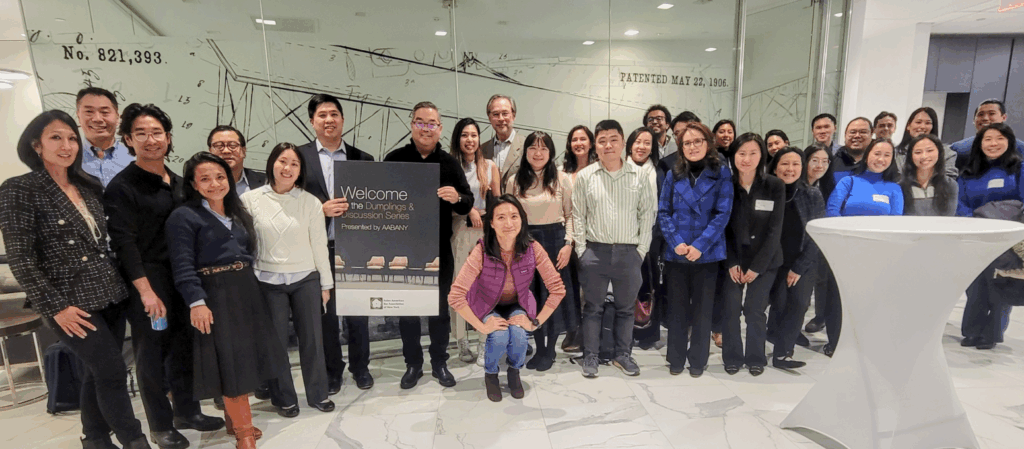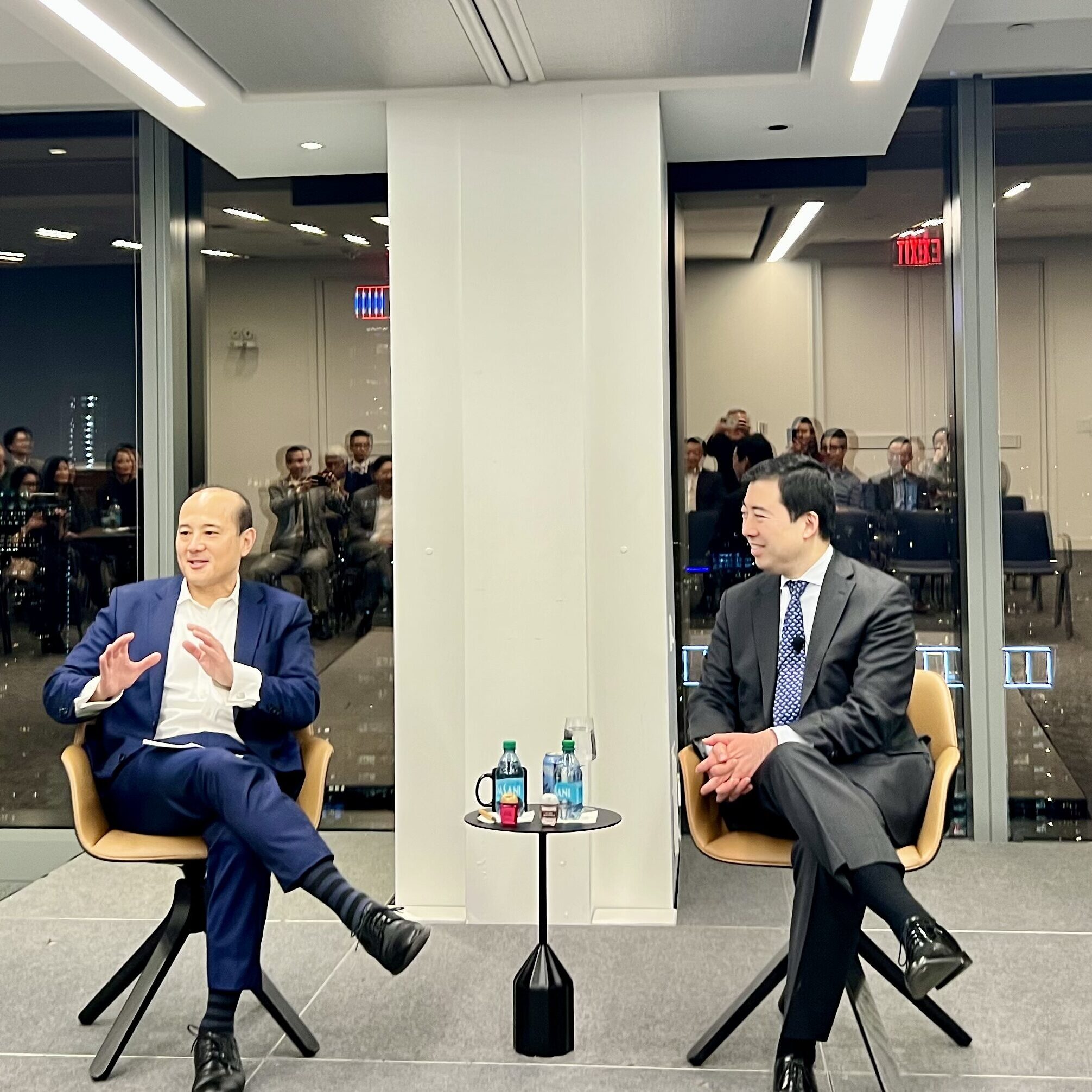
On December 9, AABANY hosted the final Dumplings & Discussion fireside chat of the year, featuring Alan Chang, Senior Vice President & General Counsel of the New York Yankees. Over a wide selection of dumplings and other bites, Alan generously shared his career journey, offered candid insights into the sports industry, and gave practical advice for junior lawyers navigating their own paths. Thank you to the audience for their thoughtful questions and lively engagement, which made the discussion dynamic and meaningful. Attendees continued networking and exchanging ideas well into the night during the post-chat reception.

We are grateful to all of the incredible speakers of 2025 who helped the Dumplings & Discussion series continue to be a welcoming forum for sharing stories and candid dialogue:
- Alan Chang, New York Yankees
- Michelle Lee, MediaCo
- Christopher Chan, JLL Technologies
- Sonia Low, Javits Center
- Liz Nie, Acorns
- Stephen Mar, Odeko
- Osamu Watanabe, Moelis
Thank you to each of these leaders for inspiring our community and contributing to meaningful conversations throughout the year.
We’re excited to keep the momentum going in 2026 with more opportunities to connect, learn, and—of course—enjoy dumplings together. Stay tuned for announcements on future Dumplings & Discussion fireside chats.
See here to read about past Dumplings & Discussion chats.
— Written by Jeffrey Mok, AABANY Board Director and Co-Chair of AABANY’s Intellectual Property Committee





